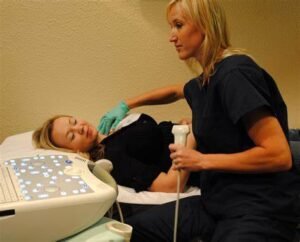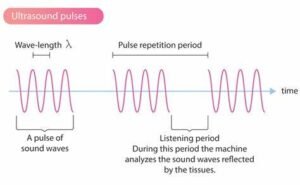Your Guide to OB Ultrasound Tech School
Ultrasound technology plays a vital role in modern prenatal care, and as you consider a career as an OB ultrasound technician, it’s imperative to know the pathways available. This guide will help you navigate through various training programs, from certification courses to advanced degrees, while also outlining the skills required and the certifications you’ll need to succeed.
By the end of this post, you will have a comprehensive understanding of how to establish your career in this rewarding field and the promising job outcomes that await you.
Understanding OB Ultrasound Technology

Before submerging into your journey as an OB ultrasound technician, it’s crucial to grasp the significance of ultrasound technology.
This vital area within medical imaging plays a crucial role in prenatal care, enabling healthcare professionals to monitor the health and development of the unborn child.
With advanced technologies, you will be part of a team that provides expectant parents with invaluable insights during one of the most exciting times in their lives.
Basics of Obstetric Ultrasound Technology
Ultrasound technology utilizes sound waves to create images of internal body structures, particularly focusing on the fetus during pregnancy. In obstetrics, this imaging technique allows for real-time visualization of the uterus, placental position, and fetal development, aiding in critical assessments of maternal and fetal health.
Role of OB Ultrasound Technicians in Healthcare
For you, becoming an OB ultrasound technician means you will play a vital role in the healthcare team. You are responsible for performing ultrasound examinations, capturing images, and assisting doctors in diagnosing potential concerns. Your expertise helps ensure proper monitoring and care throughout the pregnancy journey, making you a crucial support for expectant families.
Technology is continuously advancing in the field of obstetrics technician; you will be instrumental in utilizing these innovations. Your skills will not only enhance diagnostic capabilities but also improve patient experiences by providing compassionate care and clear communication about ultrasound results. By working closely with obstetricians and other healthcare providers, you contribute significantly to the well-being of mothers and their babies.
Importance of Ultrasound Imaging in Obstetrics
On a broader scale, ultrasound imaging is crucial for monitoring pregnancies and ensuring healthy outcomes. It allows for early detection of potential complications, evaluation of fetal growth, and assessment of amniotic fluid levels, which are crucial in maintaining maternal and fetal health.
Ultrasound technology plays an integral role in prenatal care, impacting not just the health of the unborn child but also the emotional well-being of parents. The ability to visualize the fetus can foster a strong bond between parents and their unborn baby.
Additionally, timely imaging can identify conditions that may require early intervention, ensuring that both mother and child receive the best possible care throughout the pregnancy. Your involvement in this process represents a critical facet of modern healthcare, empowering families with knowledge and reassurance.
Purpose and Objectives of This Guide

While commencing on a career as an OB ultrasound technician is an exciting journey, it can also feel overwhelming. This guide aims to provide you with a comprehensive guide of the educational pathways, training programs, and career outcomes available in this dynamic field.
By offering clear insights and actionable steps, you’ll be better equipped to make informed decisions about your future in OB ultrasound technology.
One objective of this guide is to outline the various educational options available, from certificate programs to degree paths. Additionally, it aims to highlight the important skills, clinical experience, and certifications necessary to excel as a technician. By understanding these components, you can effectively plan your educational journey and career trajectory.
Relevance and Who Will Benefit
The relevance and who will benefit guide includes aspiring healthcare professionals, recent high school graduates, and individuals seeking a career change into the medical field. Understanding the specifics of OB ultrasound technology is important for anyone considering this fulfilling role.
Another relevant aspect is the increasing demand for skilled OB ultrasound technicians, highlighting the significance of this career. The growth in the healthcare sector, particularly in maternal-fetal medicine, makes this field particularly appealing to those interested in providing crucial services to expectant parents. Staying informed of industry trends will further empower your decision-making process.
Structure of the Guide
One of the key elements of this guide’s structure is its clear, step-by-step approach to exploring OB ultrasound technology. It will begin with the educational requirements, followed by a deep look into the necessary skills, clinical experiences, and certifications required in the field.
With a logical layout, this guide aims to take you from initial interest to practical knowledge. Each section is designed to build on the last, ensuring that you not only understand the educational landscape but also the rewarding career opportunities that await you as an OB ultrasound technician.
Responsibilities and Work Life of an OB Ultrasound Tech

Once again, it’s important to understand that as an Obstetric Sonography, your responsibilities extend beyond operating imaging equipment.
You will play a vital role in preparing patients for exams, ensuring proper equipment function, and analyzing images for medical professionals.
Your work environment may vary, but you’ll typically find yourself in fast-paced settings such as hospitals, outpatient clinics, or private practices, all focused on delivering the best care for expectant families.
With a focus on quality patient care, your daily tasks as an OB ultrasound technician will include performing ultrasound examinations, documenting findings, and communicating results to physicians or healthcare providers. You will also educate patients about procedures, maintain ultrasound equipment, and ensure patient comfort throughout the scanning process.
Various Work Settings: Hospitals, Clinics, and Private Practices
Tasks vary based on your work setting, which can include bustling hospitals, outpatient clinics, or private practices. Each environment presents unique challenges and learning opportunities. In hospitals, you’ll often encounter complex cases, whereas clinics may offer a more routine experience with a steady flow of patients. Private practices might allow for more personalized care and ongoing patient relationships.
Understanding the nuances of these various work settings is necessary for your success as an OB ultrasound technician. In hospitals, you may need to adapt to rotating shifts and high-stress situations due to the acute nature of care, while clinics generally offer regular hours with a focus on patient-centered services.
Private practices tend to foster a more intimate atmosphere, allowing for direct interactions with a smaller patient base, which can enhance your interpersonal skills.
Collaborative Roles with Other Healthcare Professionals
Responsibilities in your role will often involve collaboration with other healthcare professionals. You will work closely with obstetricians, gynecologists, nurses, and other medical staff to ensure comprehensive patient care. Clear communication and teamwork are crucial as you share findings and assist in developing care plans for expectant mothers.
Duties in collaborative roles may include attending team meetings to discuss patient cases, providing insights from ultrasound results, and assisting in procedures alongside physicians. Building strong relationships with your colleagues will not only enhance patient outcomes but also enrich your professional experience as part of a multidisciplinary team dedicated to providing the best possible care for families.
By working together, you ensure a seamless and supportive environment during one of the most important times in a patient’s life.
Types of OB Ultrasound Tech Programs

All OB ultrasound tech programs offer unique paths to entering this rewarding field. You can choose from various training options, ensuring you find a program that fits your career aspirations and lifestyle.
Here are some common types of programs available:
- Certificate Programs
- Associate Degree Programs
- Bachelor’s Degree Programs
- Online Programs
- Continuing Education Courses
Assume that you explore these options to determine the best fit for your educational goals.
Certificate Programs
One of the quickest pathways to becoming an OB ultrasound technician is through certificate programs. These typically last between 6 months to a year and focus on vital skills and knowledge needed to perform ultrasounds. As you progress, you’ll gain hands-on experience, preparing you for entry-level positions in medical facilities.
Associate Degree Programs
Duration-wise, associate degree programs generally take about two years to complete. These comprehensive programs provide in-depth training along with general education courses. You can expect to learn anatomy, physiology, diagnostic imaging, and patient care, complemented by clinical experience.
Types of associate degree programs can vary, including an Associate of Applied Science (AAS) or an Associate of Science (AS), both of which prepare you for entry-level roles in OB ultrasound technology. The incorporation of clinical practice ensures you develop the necessary skills for real-world applications, helping you to build confidence in your technical abilities and patient interactions.
Bachelor’s Degree Programs
Ultrasound technology bachelor’s degree programs typically span four years and offer more in-depth education compared to associate degrees. These programs not only enhance your technical training but also provide opportunities for specialization in areas like obstetrics and gynecology.
Structure-wise, bachelor’s degree programs include advanced imaging techniques, research methods, and leadership training, preparing you for management roles or advanced clinical positions in healthcare. As you progress through your studies, you’ll engage in comprehensive internships, allowing you to apply your knowledge in real-world scenarios and build vital connections in the industry.
Training Program Details

Your journey to becoming an OB ultrasound technician is facilitated by various training programs that equip you with necessary skills.
These programs can range from certificate courses to associate or bachelor’s degree options, allowing you to choose a path that suits your educational background and career aspirations.
Each program emphasizes a blend of theoretical knowledge and practical application, ensuring you are fully prepared to enter this important healthcare field.
Comprehensive Curriculum Breakdown
To succeed as an OB ultrasound technician, your education will encompass a comprehensive curriculum that covers anatomy, physiology, imaging techniques, and patient care. You will learn to utilize ultrasound equipment effectively, interpret results accurately, and communicate effectively with expectant parents and healthcare teams. This foundational knowledge is crucial to provide safe, quality care in a clinical setting.
Clinical Experience: Importance and Expectations
Clinical experience is vital in your training, providing hands-on exposure in real-world settings. You will engage with patients, perform actual scans, and work alongside experienced professionals who guide your practical learning.
A robust clinical experience not only reinforces your classroom learning but also helps you build confidence in your skills. Engaging directly with patients allows you to develop necessary interpersonal skills while becoming adept at operating ultrasound technology.
Additionally, these experiences may involve working in various healthcare environments, enabling you to understand different operating procedures and patient demographics.
Program Length and Time Commitment
Experience varies significantly depending on the type of program you choose. Certificate programs can often be completed in as little as one year, while associate and bachelor’s degree programs may take two to four years, respectively. Understanding this time commitment helps you plan your educational path effectively.
Program length and time commitment are critical factors in determining your educational journey. Generally, certificate programs range from 6 months to a year, allowing for a quicker entry into the workforce. In contrast, degree programs require a greater investment of time, typically two years for an associate degree and up to four years for a bachelor’s degree.
Evaluating your career goals and personal circumstances will help you select the appropriate program that aligns with your aspirations. By understanding these commitments, you can better anticipate the dedication needed to succeed in this field.
Admission Requirements
Many aspiring OB ultrasound technicians find that admission requirements can vary by program, but most schools expect a solid foundation in science and math. Generally, you need to have a high school diploma or equivalent, with some programs recommending courses in biology, chemistry, and mathematics.
Moreover, your academic performance may be considered during the application process, alongside any relevant healthcare experience you might possess.
Prerequisites for OB Ultrasound Tech Programs

For those aiming to enroll in OB ultrasound tech programs, certain prerequisites typically need to be met. Most programs require you to have completed coursework in subjects like anatomy, physiology, and medical terminology.
Additionally, a background in healthcare or experience in a related field can enhance your application and prepare you for the rigorous training ahead.
Enrollment Criteria and Application Process
With various schools offering OB ultrasound tech programs, the enrollment criteria often include academic records, letters of recommendation, and sometimes a personal statement. Prepare to submit your application well in advance and possibly attend an interview, as these steps may help demonstrate your commitment to the field and your readiness for training.
Criteria for enrollment can include a minimum GPA requirement, completion of specified prerequisite courses, and interview performance. Some programs may also ask for health clearances, background checks, or standardized test scores. It’s important to review each program’s specific requirements to ensure you meet all necessary criteria before applying.
Financial Considerations: Tuition and Funding Options

Requirements for funding your education in OB ultrasound tech programs often vary. Tuition costs can range widely, depending on the program type and institution.
It’s crucial to explore financial aid options, which may include scholarships, grants, or federal student loans to help offset your educational expenses.
Application for financial assistance typically involves filling out forms, such as the Free Application for Federal Student Aid (FAFSA) and gathering documentation to prove your financial need.
Additionally, don’t forget to look for scholarships specifically aimed at healthcare students, which can provide vital support in covering your tuition costs and other related expenses. By thoroughly exploring these options, you can significantly ease the financial burden of your education.
Preparing for OB Ultrasound Tech School

After deciding to pursue a career as an OB ultrasound technician, it’s crucial to prepare thoroughly for your educational journey.
This preparation involves researching various training programs, gathering the necessary materials, and honing the skills that will ensure your success in school and beyond.
By being well-prepared, you’ll set yourself up for a rewarding experience as you learn to provide expectant parents with those first glimpses of their unborn child.
Essential Study Materials and Resources
On your path to becoming an OB ultrasound technician, investing in crucial study materials is crucial for your understanding of ultrasound technology and fetal development. Key resources include textbooks on anatomy and physiology, ultrasound imaging techniques, and clinical practice guides. Additionally, online courses, forums, and webinars can provide supplemental knowledge and peer support as you navigate your studies.
Recommended Skills and Personal Attributes
To excel as an Obstetric Imaging Technology, you should cultivate a blend of technical skills and personal attributes. Strong communication abilities are crucial, as you’ll interact with expectant parents and healthcare professionals. Attention to detail, empathy, and solid analytical skills will also support your success in performing accurate assessments and building rapport with patients.
Recommended skills for an OB ultrasound technician include proficiency in using ultrasound equipment and interpreting the resulting images. Technical aptitude, combined with strong problem-solving abilities, will enable you to navigate complex situations effectively.
Additionally, personal attributes like patience, compassion, and integrity will help you establish trust with patients during what can be an emotional time in their lives.
Time Management and Study Strategies
Resources on time management and effective study strategies will be invaluable as you advance through your OB ultrasound tech training. Balancing coursework, clinical experience, and personal responsibilities requires careful planning. Utilizing planners, setting goals, and breaking tasks into manageable segments will enhance your productivity and help you stay organized.
Strategies for managing your time effectively include prioritizing tasks based on deadlines and the complexity of the material. Creating a consistent study schedule can also aid in retaining information and reducing stress. Remember to integrate breaks and self-care into your routine, as maintaining your well-being is crucial for sustaining your academic performance and passion for the field.
Elevating Your Career and Expanding Your Network
Now that you understand the training programs available, it’s imperative to explore the career outcomes and opportunities awaiting you as an OB ultrasound technician. As the demand for skilled professionals in this field continues to rise, you can expect a variety of fulfilling roles that contribute significantly to patient care and prenatal health.

The Role of Networking and Professional Associations
Skills in networking can open doors to new opportunities within the OB ultrasound field. Engaging with professional associations provides a platform for collaboration, mentorship, and access to ongoing training.
These connections can be invaluable for career advancement and staying informed about industry trends.
Another important aspect of networking is the potential for professional growth through associations. Join groups like the American Institute of Ultrasound in Medicine (AIUM) and the American Registry for Diagnostic Medical Sonography (ARDMS) to gain insights, attend workshops, and obtain certifications that can elevate your profile as an OB ultrasound technician. Engaging with peers can also lead to job opportunities and valuable industry contacts.
Job Market Outlook for OB Ultrasound Technicians
Career forecasts indicate robust growth for OB ultrasound technicians, driven by advancements in prenatal imaging technology and an increasing focus on maternal-fetal health. The projected job growth in this sector positions you for stable employment opportunities as healthcare institutions expand their diagnostic services.
Potential Employers and Work Sectors
Career possibilities for OB ultrasound technicians can be found in various settings, including hospitals, private clinics, and specialized maternal-fetal medicine practices. These environments not only enhance your skills but also allow you to directly contribute to the well-being of expectant mothers and their babies.
Plus, you may also find opportunities in outpatient care centers, imaging centers, and even educational institutions focused on training future healthcare professionals. Each of these workplaces provides unique experiences and challenges depending on the patient demographics and imaging protocols they employ.
Growth Opportunities and Advancement Paths
The landscape for growth and advancement as an OB ultrasound technician is promising. You can pursue specialized certifications, expand your skill set, and even move into leadership positions within healthcare settings.
Opportunities abound for you to specialize further in areas such as 3D/4D imaging, cardiac ultrasound, or even teaching roles in ultrasound technology programs. These pathways not only enhance your expertise but also position you for higher earning potential and greater professional satisfaction in your career.
Factors Influencing Career Success
Not all OB ultrasound technicians will experience the same level of career success; various factors can significantly influence your professional journey. Consider the following elements:
- Education and training level
- Hands-on clinical experience
- Certification and specialization
- Networking opportunities
- Technological proficiency
Assume that by investing time and effort in these areas, you can build a successful career in OB ultrasound technology.
Key Skills and Competencies for Success
Influencing your success in the OB ultrasound field are key skills such as critical thinking, attention to detail, and strong communication abilities. You must be adept at using ultrasound equipment and interpreting images accurately, while also providing compassionate patient care. These competencies not only enhance your technical abilities but also improve patient interactions and outcomes.
Future Trends and Choosing a Program
Technological advancements are continuously reshaping the landscape of ultrasound imaging. You should stay abreast of innovations such as 3D and 4D ultrasound technologies, which enhance diagnostic capabilities and provide richer visualizations for expectant parents. Keeping your skills current with these advancements can significantly impact your career progress.
Associations play a crucial role in this technological evolution by offering resources, training, and certifications related to the latest ultrasound advancements. By participating in workshops and webinars provided by professional organizations, you can ensure your expertise remains relevant, allowing you to provide the highest standard of care in a field that is rapidly advancing. Staying informed gives you a competitive edge and helps you adapt to new technologies effectively.
Comparing OB Ultrasound Tech Schools
To choose the right OB ultrasound tech program, it’s vital to compare various schools based on key factors. Below is a comparison table to help you evaluate your options effectively.
| Criteria | Description |
|---|---|
| Accreditation | Ensure the program is accredited by a recognized body to guarantee quality education. |
| Program Length | Consider how long the program takes, from certificate to degree options. |
| Clinical Experience | Look for programs that include hands-on training in real medical settings. |
| Certification Preparation | Check if the program prepares you for certification exams upon completion. |
Criteria for Evaluating OB Ultrasound Tech Schools
Tech programs may vary in quality, so it’s important to assess schools based on accreditation, curriculum, faculty credentials, and job placement rates. Evaluating these criteria will help you choose a school that best fits your educational and career goals.
Insights on Accreditation and Quality
Schools that are accredited ensure that you receive a quality education, which is vital for gaining the knowledge and skills required in the field of OB ultrasound technology. Accreditation also boosts your employability, as many employers prefer candidates from accredited programs.
Comparing different OB ultrasound tech schools reveals the importance of choosing an accredited program, as it directly influences both the quality of education and your future career prospects. Programs accredited by recognized bodies are often held to stringent standards, ensuring that you gain the knowledge and practical skills needed to excel in your role. Graduating from an accredited program can also enhance your job opportunities, as employers are likely to favor candidates with reputable training backgrounds.
Summaries of Notable Programs
An details of notable OB ultrasound tech programs can guide you in selecting one that aligns with your career aspirations. These programs typically offer a mix of theoretical knowledge and practical skills vital for a successful career in ultrasound technology.
For instance, some notable programs incorporate advanced imaging technology in their curriculum, ensuring that you are well-versed in the latest innovations in the field. Additionally, many programs offer personalized support and internship opportunities that facilitate networking and job placements after graduation, making them an excellent choice for your career as an OB ultrasound technician.
Duration of OB Ultrasound Tech Programs

One of the key factors to consider when pursuing a career as an OB ultrasound technician is the duration of the training programs available.
Typically, certificate programs can be completed in as little as one year, while associate degree programs generally require two years of full-time study.
This timeframe allows you to gain the educational foundation and technical skills needed for the workforce.
Required Certifications for Practice
Practice as an OB ultrasound technician typically requires specific certifications, which validate your skills and knowledge in the field. Most employers prefer or require certification from recognized bodies such as the American Registry for Diagnostic Medical Sonography (ARDMS). Completing a relevant training program and obtaining certification can significantly enhance your job prospects.
Another necessary aspect of required certifications is staying current with technological advances. The ARDMS offers distinct certifications in areas such as obstetric and gynecologic ultrasound. Achieving these credentials not only demonstrates your competence but also enhances your credibility in a competitive job market, making you a desirable candidate for potential employers.
Job Prospects and Salary Expectations
Frequently, aspiring OB ultrasound technicians wonder about job prospects and salary expectations in this field. According to recent data, the job market for diagnostic medical sonographers is projected to grow by 14% from 2020 to 2030, offering ample opportunities as demand for ultrasound services increases. Salaries for OB ultrasound technicians also show promising figures, averaging around $76,000 per year, depending on factors like experience and location.
Duration of the training programs and certifications plays a significant role in shaping your career prospects. With an expanding job market and competitive salaries, investing in your education and certifications can yield substantial long-term benefits, ensuring you are well-prepared for a fulfilling career in OB ultrasound technology.
Resources for Aspiring OB Ultrasound Techs
For those beginning on a journey to become an OB ultrasound technician, utilizing available resources is vital to your success. From professional organizations to online learning platforms, these tools can enhance your education and support your career development. By leveraging these resources, you can gain the knowledge, skills, and connections necessary to thrive in this rewarding healthcare field.
Professional Organizations and Associations
To further your career, consider joining professional organizations and associations related to ultrasound technology. These groups provide valuable networking opportunities, access to industry research, continuing education, and professional development resources that can enhance your qualifications as an OB ultrasound technician.
Online Platforms for Additional Learning
Aspiring OB ultrasound techs can benefit greatly from online platforms offering courses and resources tailored to ultrasound technology. These platforms often provide flexible learning options that fit your schedule while enabling you to build expertise in vital areas such as fetal anatomy and ultrasound techniques.
Learning through online platforms can significantly enhance your skill set. Many of these platforms offer courses that include interactive modules, video tutorials, and quizzes to reinforce your understanding. This flexibility allows you to explore specialized topics such as obstetric ultrasound, increasing your confidence and readiness for clinical practice.
Networking Opportunities for Students and Graduates
A vital part of your career development will involve actively seeking networking opportunities with fellow students, educators, and industry professionals. Building these connections can provide you with mentorship, leads, and insights into the evolving landscape of OB ultrasound technology.
Understanding the importance of networking can open many doors for you in the OB ultrasound field. Engaging in professional events, forums, and social media groups can help you connect with experienced technicians and potential employers. These relationships can be crucial for learning about openings and advancing your career after you graduate from the OB ultrasound tech program.
FAQs
What types of training programs are available for aspiring OB ultrasound technicians?
Aspiring OB ultrasound technicians can choose from various training programs, including certificate programs, associate degrees, and bachelor’s degrees. Certificate programs typically take around one year to complete and focus on the crucial skills needed for the profession. Associate degree programs often last two years and provide a more comprehensive education that includes general education courses.
Bachelor’s degree programs, which can take four years, offer advanced training and may include specialized coursework in imaging technology, healthcare management, and patient care. Additionally, many programs include hands-on clinical experience to prepare students for real-world scenarios.
What skills are crucial for success as an OB ultrasound technician?
Essential skills for success as an OB ultrasound technician include strong technical aptitude, critical thinking, and excellent communication abilities. Technicians must be proficient in operating ultrasound equipment and interpreting the images produced accurately.
Additionally, they should have good interpersonal skills to effectively interact with patients and their families, providing emotional support and clear explanations during procedures. Attention to detail and the ability to work under pressure are also crucial, as technicians must ensure that they capture high-quality images while maintaining patient comfort and safety.
What are the job prospects and career outcomes for OB ultrasound technicians?
The job prospects for OB ultrasound technicians are quite promising due to the growing demand for diagnostic imaging in healthcare. According to the Bureau of Labor Statistics, employment for diagnostic medical sonographers, including OB ultrasound technicians, is expected to grow significantly over the next decade.
Graduates from OB ultrasound tech programs may find work in various healthcare settings, including hospitals, clinics, and private practices. Additionally, experienced technicians may have opportunities for advancement into supervisory or specialized roles, such as fetal echocardiography or management positions in imaging departments.
Conclusion
The journey to becoming an OB ultrasound technician offers you an exciting blend of technology and compassion within the healthcare field. By understanding the various training programs, required skills, and certifications outlined in this guide, you can confidently navigate your path toward a rewarding career.
Whether you choose a certificate program or pursue a degree, your commitment to learning will open doors to a satisfying profession where you can make a meaningful impact on the lives of expectant families.

Daniel E
Hey there! I’m Daniel E, your friendly tech guide. At MD Techie, I unravel tricky tech stuff, making it easy-peasy for both newbies and seasoned pros. Think of me as your decoder ring for all things geeky!” 🌟🔍🚀




